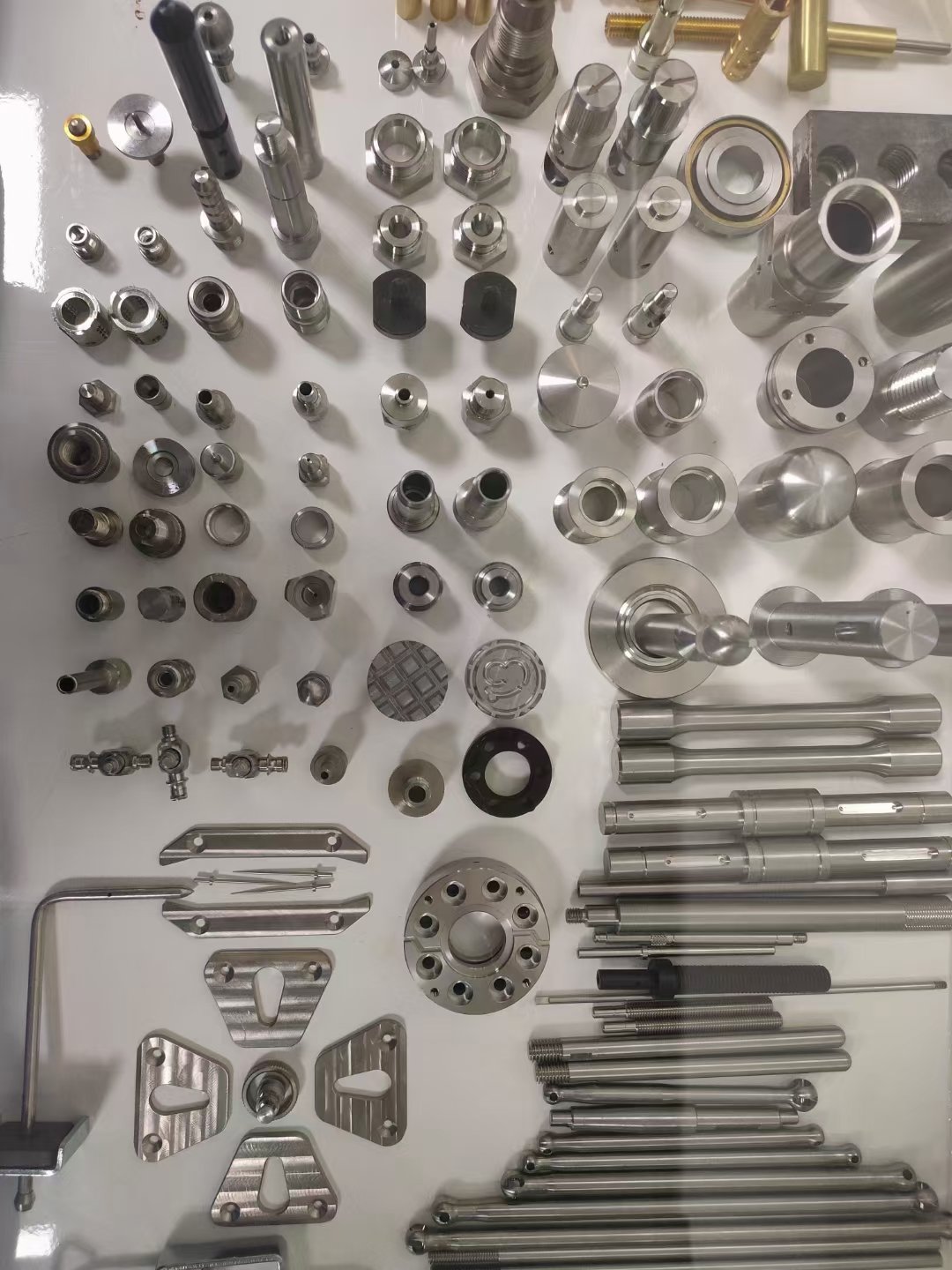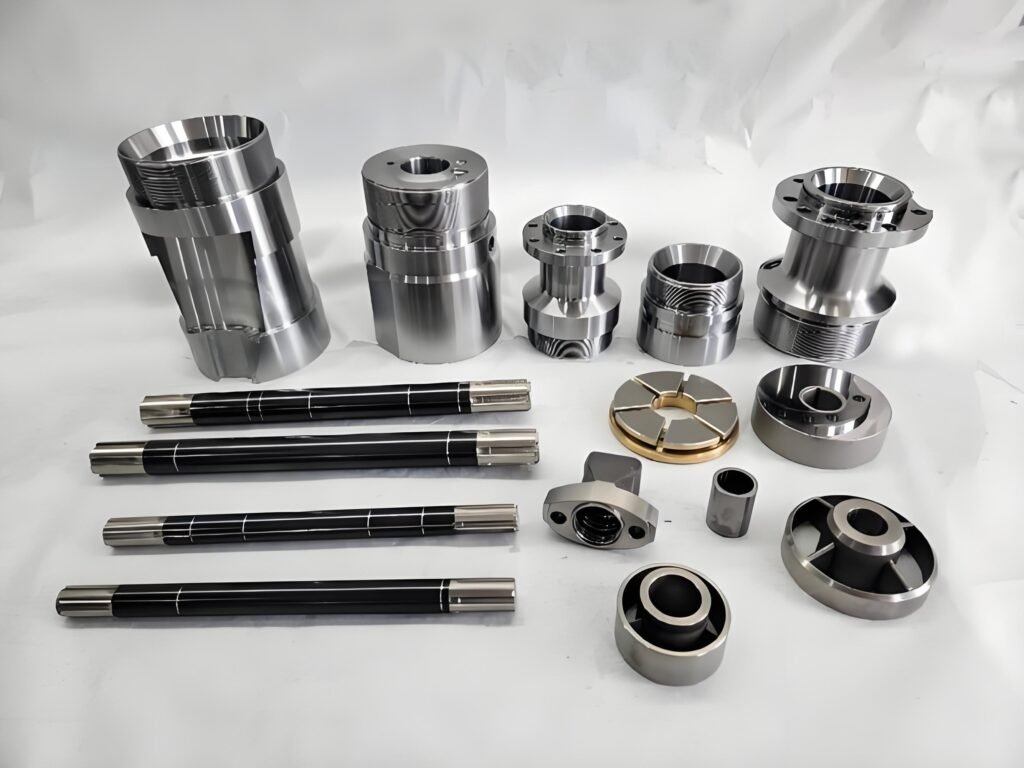When it comes to medical device prototype CNC machining, precision and quality are of paramount importance. Jupaicnc, a leading company in the field, understands the unique challenges involved in manufacturing medical components. With years of experience in CNC machining for medical devices, Jupaicnc provides customers with a comprehensive RFQ (Request for Quote) checklist that streamlines the process and ensures that all critical aspects are considered before initiating production. A well-structured RFQ helps both manufacturers and clients understand the exact requirements for the medical components prototype machining, reducing the risk of errors and ensuring high-quality results. The right RFQ not only sets the groundwork for successful machining but also fosters clear communication between the parties involved, which is especially important in the medical industry where precision is non-negotiable.

For any medical device, the prototype is the first step toward full-scale production. At this stage, each design element must be meticulously assessed and refined. For companies like Jupaicnc, understanding the scope of a project begins with reviewing key factors such as material selection, tolerances, and the intended use of the final device. Whether it’s a complex surgical instrument or a life-saving diagnostic tool, Jupaicnc is dedicated to ensuring that the prototyping phase is executed with the utmost attention to detail. A thorough RFQ checklist helps in addressing all technical specifications right from the outset, providing clarity on requirements and avoiding potential misunderstandings.
The complexity of medical components prototype machining means that the RFQ should address a variety of critical factors. These include the type of material to be used, as certain metals and polymers are more suited to medical device applications due to their durability, biocompatibility, and ease of sterilization. Moreover, machining medical components often requires adherence to strict industry standards and certifications, such as ISO 13485, which is essential for companies like Jupaicnc. By addressing these specifications within the RFQ, the process of selecting the right material and production method is simplified. Jupaicnc’s approach to RFQ ensures that all materials used in machining meet these high standards, ultimately contributing to the functionality and safety of the medical device.
Another aspect that Jupaicnc highlights within their RFQ template is the tolerance and dimensional requirements of the prototype. Medical device prototypes often feature intricate details that demand a high degree of accuracy. For instance, surgical instruments must be precisely machined to ensure correct fit, form, and function. This is why CNC machining is an ideal choice for producing prototypes in the medical field. The high precision and repeatability of CNC machining allow manufacturers to create parts with extremely tight tolerances, which is essential in ensuring that prototypes can be tested and validated for real-world performance. By defining the tolerance requirements clearly in the RFQ, both the manufacturer and the client can avoid costly adjustments and delays later in the process.
Additionally, the RFQ should include the intended use and functionality of the medical device prototype. This is vital, as it ensures that the prototype is not only built to spec but also serves its intended purpose in the real world. For instance, the design of a medical device like a catheter or prosthesis will differ depending on whether it is meant for short-term or long-term use. This will directly influence the materials used, as well as the machining processes employed. Jupaicnc takes these details seriously, ensuring that each medical component prototype is machined according to the highest standards of quality while also meeting the specific functional requirements outlined in the RFQ.
The production timeline is another important factor that needs to be clearly outlined in the RFQ. Medical device companies typically face strict deadlines when moving from prototyping to production. An RFQ should detail any time constraints and delivery schedules, allowing both the client and manufacturer to plan effectively. Jupaicnc is committed to meeting deadlines while maintaining the highest standards of quality, which is why they emphasize the importance of accurate timelines in the RFQ checklist. This level of transparency ensures that both parties are aligned and that the production process moves forward without unnecessary delays.
In addition to these technical aspects, the RFQ should also encompass post-machining services, such as inspection and testing. For medical device prototypes, the final product must undergo thorough inspection to ensure that it meets all regulatory requirements and quality standards. This could involve non-destructive testing, dimensional analysis, or other specialized inspections based on the type of device being produced. Jupaicnc includes these considerations in their RFQ template, allowing manufacturers to plan for the final steps of the process well in advance. This ensures that the medical components are not only precisely machined but also thoroughly tested before being moved into production.
Another often overlooked element in the RFQ process is communication. Jupaicnc places great emphasis on maintaining clear and open communication throughout the project. From initial inquiry to final delivery, being able to ask questions, provide updates, and make revisions is essential for the success of any medical device prototype machining project. By including communication preferences and protocols in the RFQ, both the manufacturer and the client can avoid misunderstandings and ensure that expectations are met every step of the way.
Finally, it is important to recognize that a well-organized RFQ template is not just a tool for gathering information but also a blueprint for successful medical device prototype machining. The RFQ ensures that both Jupaicnc and their clients are on the same page, leading to a smoother, more efficient process. By providing clients with a clear and concise RFQ checklist, Jupaicnc demonstrates their commitment to precision, quality, and customer satisfaction in every project they undertake, making them a trusted partner for medical component machining.
Medical Device Prototype CNC Machining RFQ Checklist – Jupaicnc Free Template
In the complex world of medical device development, precision and efficiency are paramount. The Medical Device Prototype CNC Machining RFQ Checklist by Jupaicnc is an invaluable resource designed to streamline your Request for Quotation (RFQ) processes. This comprehensive free template is meticulously crafted to ensure you capture all necessary details, enabling a smoother transition from concept to prototype.
Why Use This Checklist?
The medical device industry is rife with regulatory demands and intricate design specifications. Having a clear and structured RFQ checklist can significantly impact the quality, cost, and timeline of your manufacturing process. Here’s what makes our checklist stand out:
- Thorough Coverage: Our template encompasses all critical aspects of CNC machining, including material selections, tolerances, and finishes, ensuring no detail is overlooked.
- Standardization: By utilizing our checklist, you establish a standardized approach to RFQs, simplifying communication with manufacturers and improving consistency across projects.
- Time-Saving: Reduce the back-and-forth with suppliers by clearly outlining your needs from the start, significantly speeding up the response process.
- Enhanced Clarity: Improve the clarity of your specifications, minimizing misunderstandings and reducing the risk of costly errors during production.
Benefits of Using the Jupaicnc RFQ Checklist
Adopting the Jupaicnc RFQ Checklist not only organizes your RFQ process but also adds considerable value to your project:
- Improved Cost Estimation: A precise RFQ allows manufacturers to provide more accurate quotes, helping you budget more effectively.
- Better Supplier Selection: With a clear picture of your requirements, you can evaluate suppliers more efficiently, ensuring you choose the best partner for your project.
- Streamlined Workflow: The checklist serves as a roadmap, guiding you through each step of the RFQ process and enhancing overall project management.
Get Your Free Template Today!
With the Medical Device Prototype CNC Machining RFQ Checklist from Jupaicnc, you empower your team to approach CNC machining requests with confidence and foresight. Don’t leave your prototype development to chance; download our free template today and take the first step towards a more organized and effective RFQ process. It’s time to realize your vision in the medical device realm with precision and professionalism!

